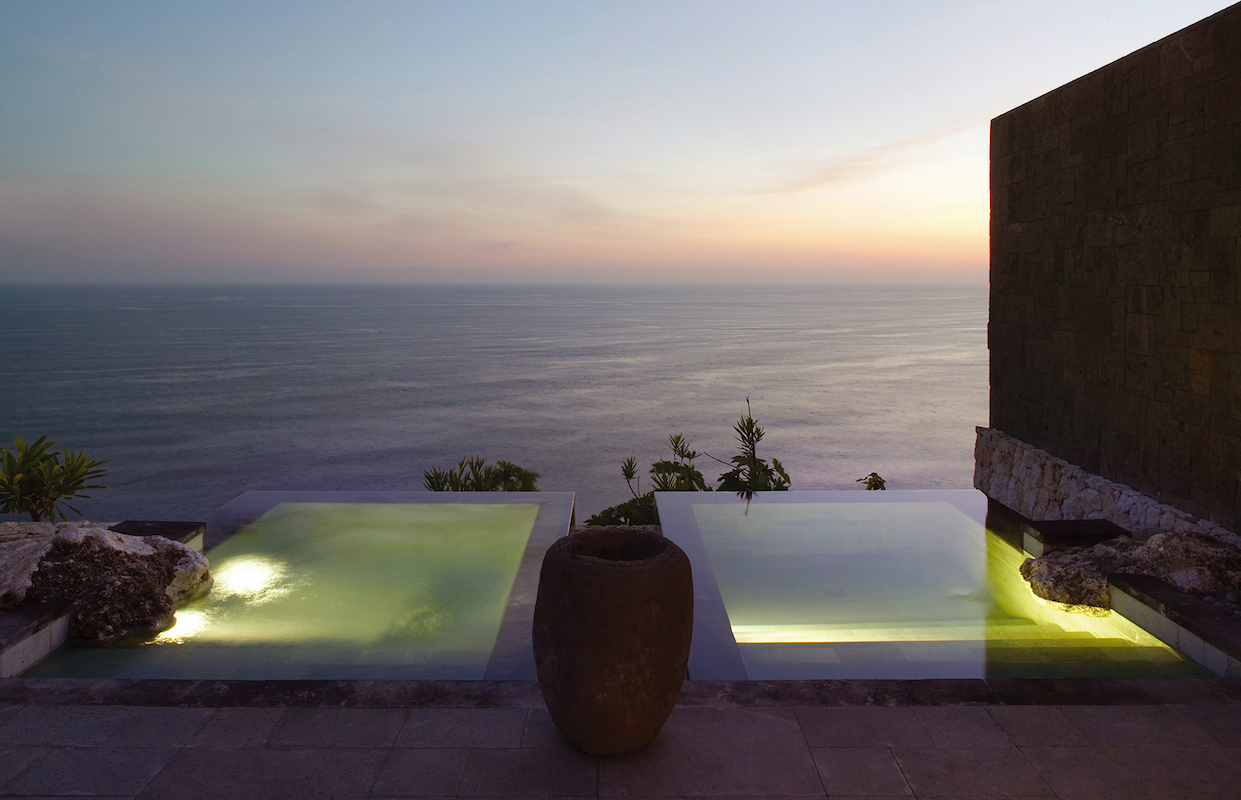This website uses cookies so that we can provide you with the best user experience possible. Cookie information is stored in your browser and performs functions such as recognising you when you return to our website and helping our team to understand which sections of the website you find most interesting and useful.
Island jewel: Bulgari Hotels Bali
By Stephanie Gavan | 28 January 2023 | Travel
Experience barefoot luxury in serious style as Bulgari merges Italian flare with Indonesian spirit
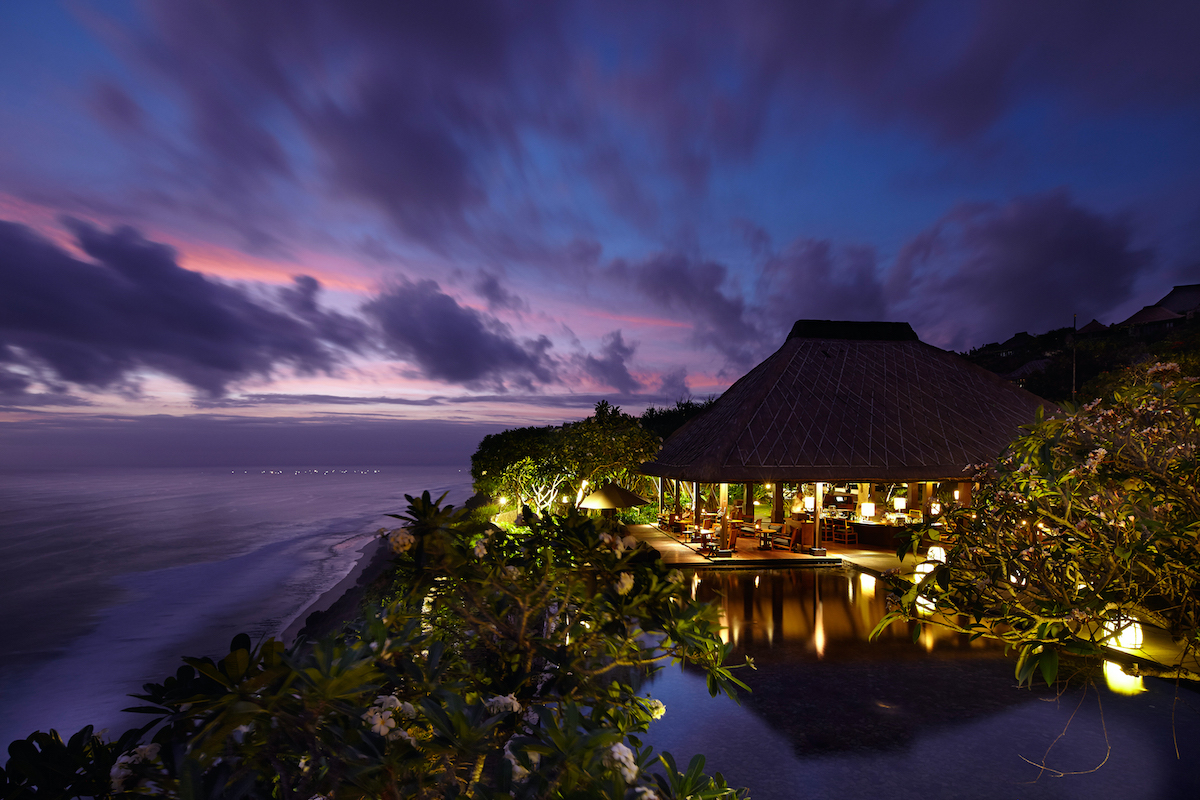
There are few places that live up to their name quite like Bali; the Indonesian ‘Island of Gods’, where magic looms around every picturesque turn. Not least in the island’s southernmost tip, Uluwatu – literally translated as ‘lands end’ – where the threshold to the transcendental thins out amid cliff-hanging drama and knee-weakening sunsets. Paradise, you could say. But it wasn’t so long ago that this particular paradise, thanks to a succession of lockdowns and strict travel restrictions, saw its usual flock of Eden-seekers down to double digits – in 2021, in fact, the island received a mere 45 international visitors. Thankfully this year the gods have relented and Bali is back in business.
But for now, let’s rewind.
It’s just past 7pm and I’m pulling up to the Bulgari Resort Bali, where I’m greeted by an impressive arrival pavilion, a much needed post-flight tonic of mint, basil and honey and what feels like a embrace from an old friend. “Hospitality is in the heart and soul of Balinese people,” Anthony Smekens, Bulgari Hotels & Resorts general manager tells me.
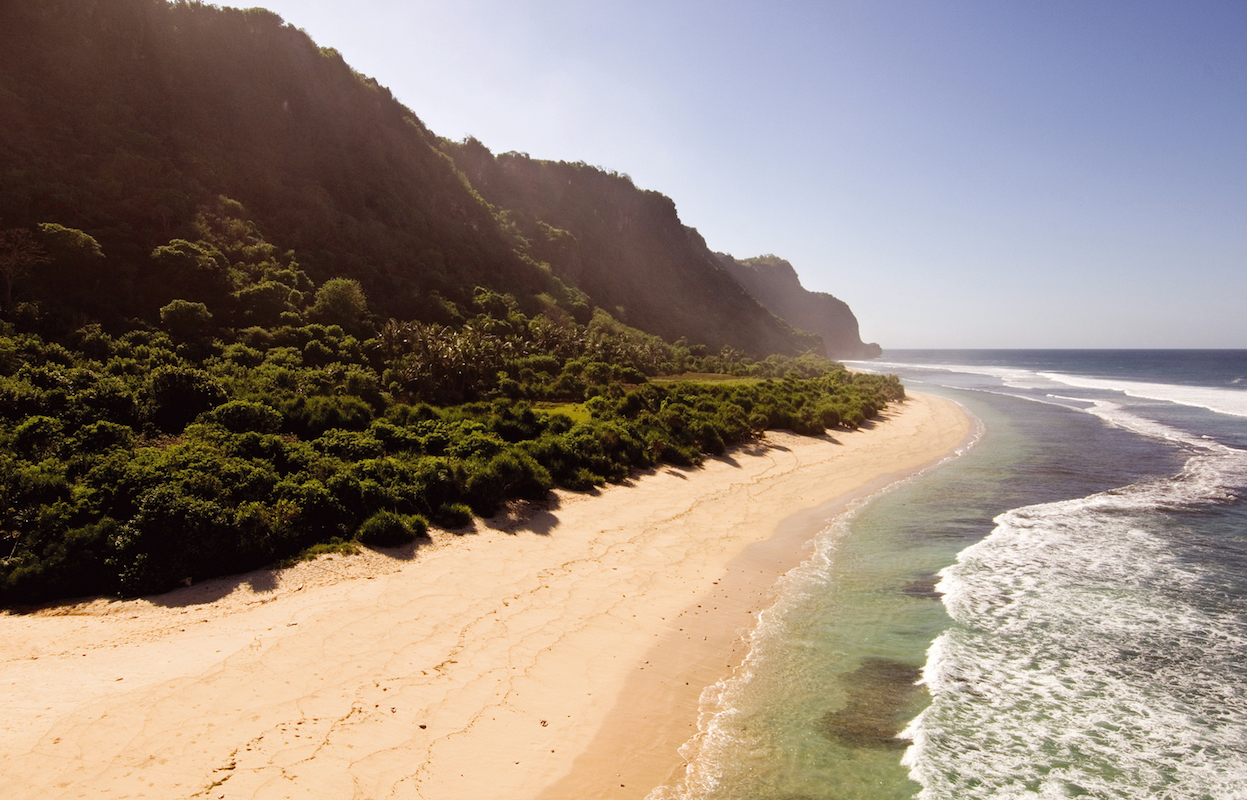
Opened in 2006, the resort is spread across 21 tropical acres on the island’s Bukit peninsula. Once the hunting grounds of the Balinese royal families, these days the area remains one of Bali’s best kept secrets, with a smattering of exclusive properties, knock-out temples and some of the world’s finest surfing locations – all suitably far from the madding crowd.
With the Bulgari resorts famed for their style, Bali’s villas do not disappoint. Cut from local volcanic stone and perched up to 160m above sea level, all 59 of them are tropically triumphant; think intricately hand-carved doors, bamboo roofs and sultry interiors of rich, mahogany wood. Inside, Balinese antiques and locally sourced embroidered fabrics sit beside hefty Bulgari coffee-table books, while outside an intimately contained open-air living space makes a fine spot for al-fresco dining and sun-drenched reclining. From my private plunge pool, I watch the evening sun bruise the sky in brilliant shades of pink and it suddenly seems obvious why Bulgari – a brand known for its colourful flights of fancy – should set up shop here; the pair make rather bedazzling bedfellows whose gem-toned thrills cannot be understated.
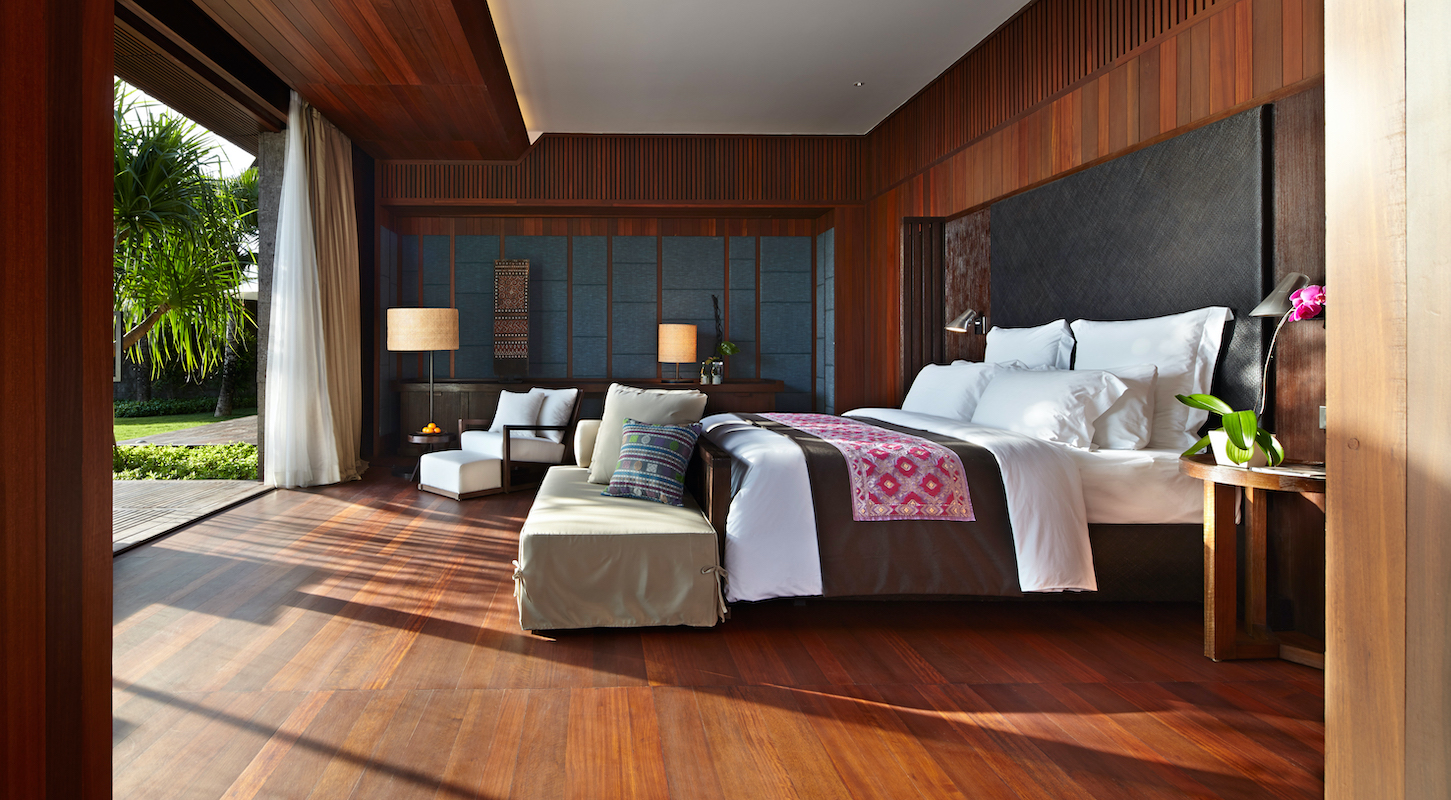
Nature's gems
Natural jewels aside, the pace of life here is gratifyingly slow. After a crack-of-dawn guided yoga session, I head to sea-facing Sangkar, Bulgari’s Indonesian fusion restaurant, where all my good intentions are immediately undone as I work through a heaped plate of nasi goreng (okay, and maybe also a pastry or two) while watching a monkey nonchalantly rummage through the sacred offerings left on an obelisk outside. Vestiges like these can be found sprinkled throughout the resort, speaking to the deeply spiritual Balinese culture. “Nowadays,” Anthony continues, “our guests are looking to participate in local discoveries and cultural activities”. It’s a trend that can be seen across the luxury travel industry, where travellers are tending toward experiences that foster meaningful connections and can’t be found in a guidebook.
One such experience on offer here is the Melukat purifying ceremony, which can be arranged at the temple of the resort or the beach. On a mission to conquer my unrelenting fear of heights, I choose the beach, accessible by a dizzying cliffside funicular. The next hour is an incense-induced haze as a Hindu priest from the neighbouring village chants, intermittently casting flowers into the waves that crash in succession before foaming their way across bone-white sand. Multiple blessings later, I feel sufficiently absolved and, dare I say, ready for whatever vertigo-inducing adventure life springs on me next.
Spoiler: it was a helicopter trip to the royal passage of Klungkung, one of Bali’s most important historical and cultural attractions. For those more partial to earthbound excursions, verdant Ubud is home to scenic rice paddies, mischievous monkeys and artisan homeware stores selling everything from bamboo baskets to handmade ceramics. Closer to home, Uluwatu Temple in Pecatu is considered one of the island’s six spiritual pillars. Head there for daily sunset Kecak performances – a traditional fire dance that tells the story of Ramayana, a Sanskrit epic, in the most dramatic, nay, bewitching way.
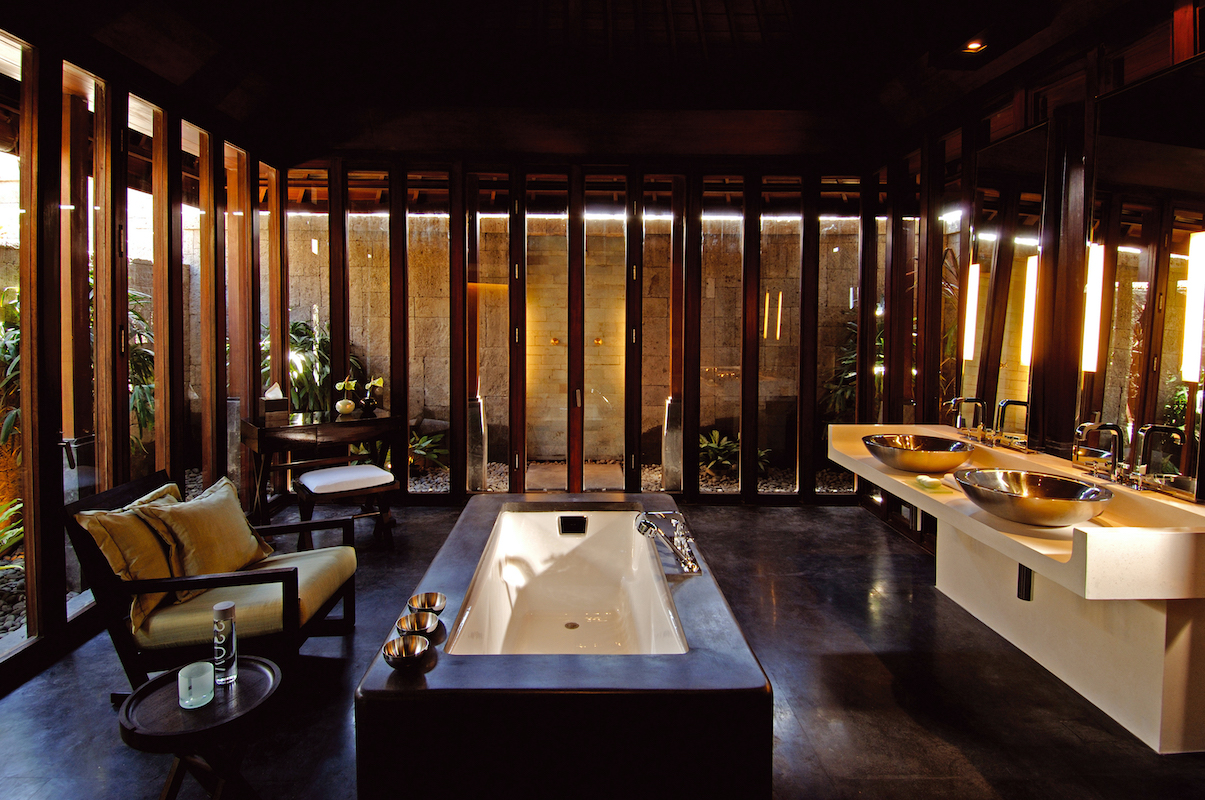
Indonesian indulgence
Back at the resort, Michelin-starred chef Luca Fantin is preparing for dinner. In contrast to the hotel’s more casual La Spiaggia, which specialises in fresh, grilled seafood, Fantin’s eponymous restaurant is a woo-worthy set up of white linens and candlelight. Tonight’s liberal seven-courser consists of dishes like chargrilled beef with caper-filled aubergine alongside more experimental plates of cold spaghetti and caviar, putting an Asian spin on traditional Italian fare. All paired expertly with wines from the restaurant’s 200-bottle collection.
Having overdone it ever-so-slightly on an Umbrian vintage, the next morning I swing by the gym where views of the garden from floor-to-ceiling windows make the usual treadmill grind that little bit easier. For guests more devoted than I, a team of expert trainers are at hand to devise bespoke nutrition and exercise regimes throughout their stay. Then it’s off to the spa – though to call it such risks underplaying this monument to relaxation. It’s fair to say that Bulgari doesn’t do things by halves, evinced most profoundly by the building which houses said spa – an antique joglo high-roofed wooden building painstakingly dismantled in central Java and reassembled on site. The muscle-melting Balinese massage works a dream, quite literally. I wake up feeling reborn, and, with my mind emptied of its usual neurotic flurry, enjoy a rare moment of uninterrupted nothingness as I gaze out across the ocean, tea in hand, from the adjacent relaxation area.
After a dip in the main pool – a must for the Instagram-inclined, as the infinity edge blurs into the sky – an aperitivo is in order; Il Bar has all the brooding brilliance of an Italian runway set. It’s no coincidence, then, that the design of the black resin ellipse arch bar was plucked straight from Bulgari’s Milanese outpost. Likewise, the signature cocktail made with gin, Aperol, orange, lime and pineapple is a staple among all seven hotels – currently Bali, Milan, London, Dubai, Beijing, Shanghai and Paris, with further locations in Miami Beach, Ranfushi and LA opening in 2026. Next year will see hotels open in Tokyo as well as a new flagship property in the brand’s Roman homeland.
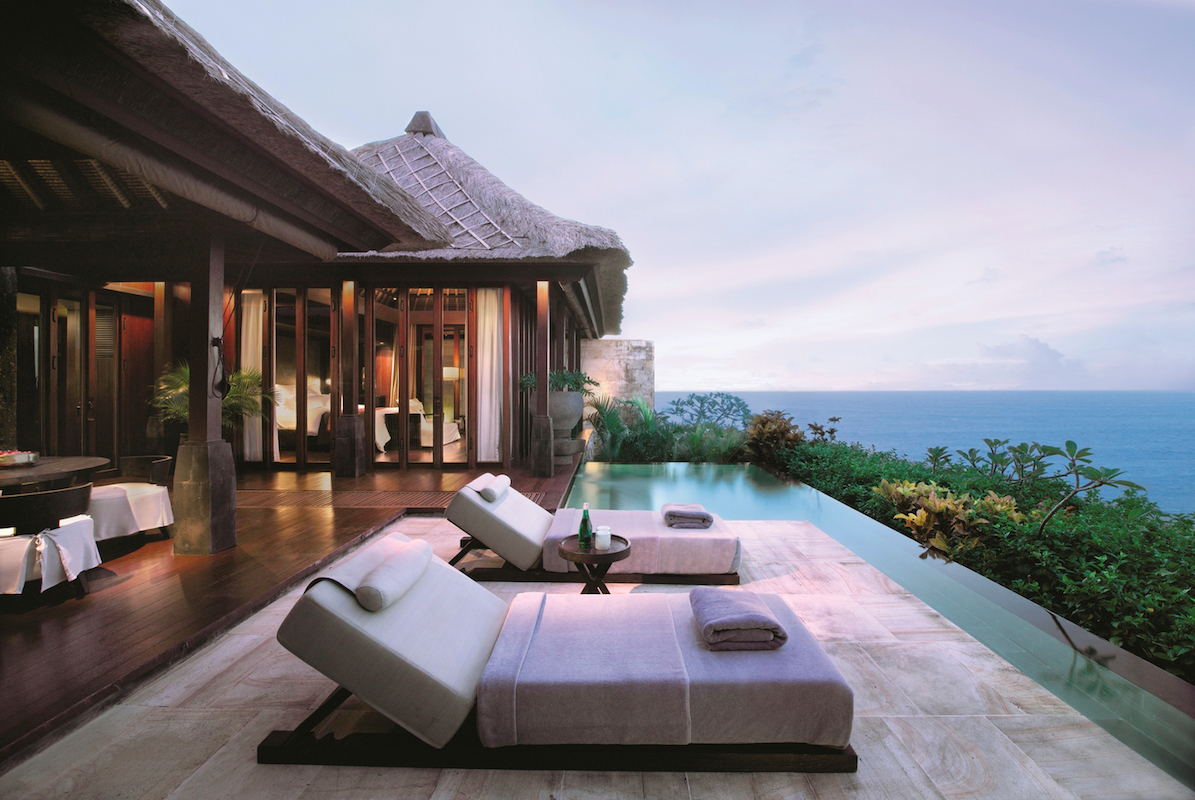
Andy Warhol once dubbed the jeweller’s Eternal City headquarters the most important museum of contemporary art and, frankly, the same could be said about their resorts, where fine-tuned craftsmanship – courtesy of the Bulgari Group’s go-to architects Antonio Citterio Patricia Viel – outstrips nearly anything you’ll find at Frieze.
Having just returned from Bulgari Dubai, home to two Michelin-starred restaurants, a 46-boat harbour and one of the world’s best 50 bars, one thing the brand excels at is capturing the genius loci of each place – the immaterial essence that cannot be rationally explained – all the while maintaining that unmistakable Italian flair.
In Dubai, it’s high-voltage luxury; in Bali, barefoot utopia. But what unites them is a dedication to artistry and an intimate understanding that, just like crafting a jewel, you must start with the right stone.
